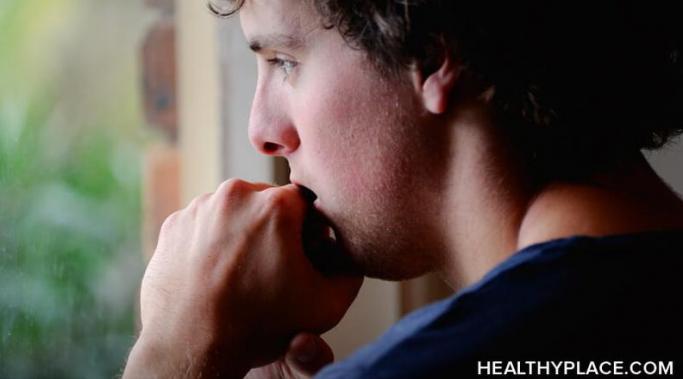During my own PTSD decades (yes, I struggled for 25+ years!), one of the toughest things for me was having to be around other people when I felt horrible, depressed, anxious, angry, sleep-deprived and just generally dysfunctional.
About PTSD
When I first started my PTSD recovery I read a slew of books and articles about how trauma recovery is supposed to happen. Many of the theories, dating all the way back to the late 1800s (check out Charcot and Janet if you want to do some research), spoke about the need to 'integrate' the trauma by being able to tell your story.
Huge road block: I couldn't tell my story. Did that mean I wouldn't be able to heal?
Why do senseless things happen to people who are just doing their best to move through life being good? You can be productively contributing to society, helpless and young, older and learning to evolve on the continuum of your own private journey here on earth -- it doesn't seem to matter what kind of person you are, trauma randomly selects you to scoop up in the siphon of its cyclone. Why?
I'll be honest with you: From the surface there wasn't much I was good at in PTSD recovery - unless you count avoidance. I was really, really good at that! And hypervigilance. And re-experiencing. Basically, you know, I was really good at PTSD symptoms. Recovery.... not so much!
So when I ask you what you're good at I know that's a sort of loaded question. Struggling with symptoms of posttraumatic stress can make you feel like you're just not good at anything, unless it's being depressed, hopeless and just generally feeling useless.
So many of the survivors I work with and talk to express the same idea:
There are more than one of me in here!
Technically, they don’t mean there’s more than one personality inside their mind, so what do they mean?
During my trauma, there was a moment so overwhelmingly horrific and painful that I literally willed myself to die. I became intensely still and allowed all energy to flow out of my body. Very soon, I felt myself leave my body and move toward a tunnel in the ceiling that was ringed with white light.
Obviously, I wasn’t successful in my death quest. But in that moment what did I experience?
I received an email from a client last week; he was very upset. Usually, he's the kind of guy who likes to travel on the drop of a dime but since PTSD began to control his life, he’s noticed that traveling takes an enormous toll on him.
After even the smallest trip, he wrote, "I have to sleep all the next day. Is this part of the PTSD profile?"
In a word: Yes.
If you have PTSD (post-traumatic stress disorder), you’re no stranger to excessive feeling, acting and behaving.
Think of it this way: Living with PTSD, you are like a pitcher filled to the brim with water. As long as no one and no thing pours more water on the pitcher, it can stay at capacity and not overflow. You can hold yourself together, cope and manage if, not easily, at least often somewhat effectively.
When more water is added to the pitcher, however, what happens? That’s right! The liquid overflows and there’s just nothing you can do about it.
One of the most difficult things to do in balancing life and PTSD is to maintain, develop and/or build a career. There are times we are able to channel all of our anxious energy into being a super-duper employee (there are, you know, great benefits to hypervigiliance in how you perform your job!) – and times it’s just not possible to expect that level of performance from ourselves. During my own PTSD decades, I had eleven jobs in five industries over thirteen years because sometimes I could hold a job – and sometimes I really just couldn’t.
Pop quiz, peeps! While everyone knows that veterans struggle with PTSD, do you really know how many? Or who PTSD affects more, men or women? And did you know these important stats about children?








